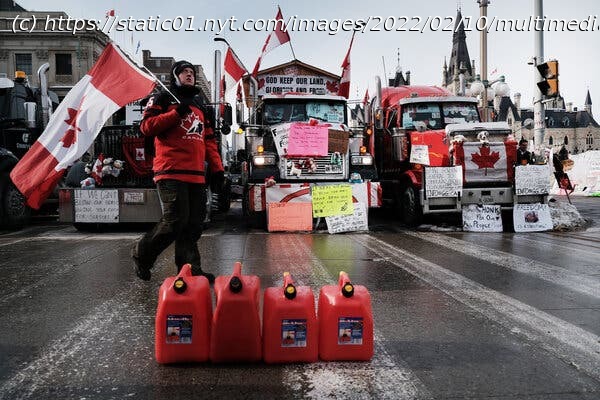Once narrowly focused on a vaccine mandate for drivers entering Canada from the U.S., the protests have ballooned into a sprawling campaign against various grievances.
Truck drivers protesting vaccine mandates are parking their rigs in the middle of intersections in Canadian cities, blocking traffic and, in some places, bringing daily life and business to a standstill. Mayor Jim Watson of Ottawa said, “We’re in the midst of a serious emergency, the most serious emergency our city has ever faced.” Here is what you need to know about how a handful of people turned Canada, whose constitution calls for “peace, order and good government,” into an unlikely springboard for a budding global movement. On Jan.22, convoys of truck drivers departed from British Columbia en route to Ottawa, Canada’s capital, to protest a vaccine mandate — imposed by the government of Prime Minister Justin Trudeau — for truckers entering the country from America. Mr. Trudeau initially dismissed the protesters as a “small fringe minority” — a majority of Canadians say they support public health measures intended to slow the spread of the coronavirus — but the protesters are having an outsize impact for their small numbers. After first blocking traffic in Ottawa, the truck drivers later staged similar protests in other cities, including Toronto, Quebec City and Calgary, as well as on the Ambassador Bridge to Detroit, a vital link for the automobile industry. In Ottawa, the protesters hunkered down in tent encampments and tables with hot coffee and mittens. The goal is to disrupt daily activities for residents and slow the economy in order to force federal officials to roll back pandemic restrictions. Mayor Watson has described the protests as unbearable and has declared a state of emergency.






